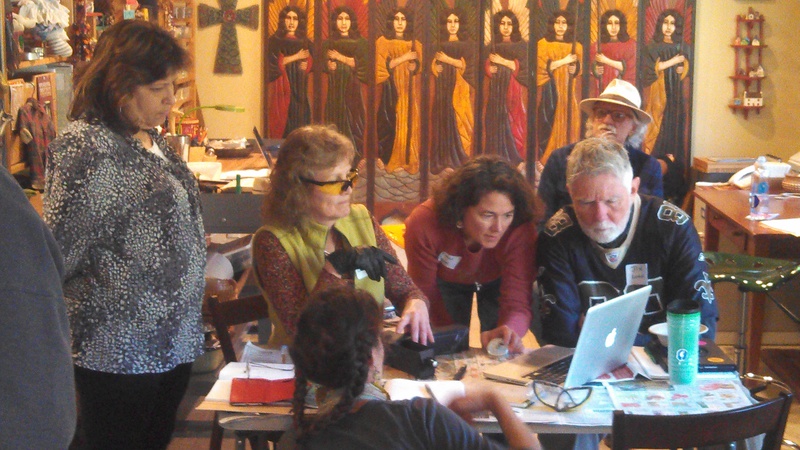
Oil Testing Workshops
Introduction: Oil Testing Kit Workshops
For Whom?
These workshops were created for people who are interested in examining materials they know or suspect to be oil. The workshops can be run by anyone who has read through the materials in advance; any questions you may have before you run the workshop can be sent to plots-spectrometry@googlegroups.com. These workshops have been written for participants at the high school level or above.
Why?
Reporting suspected oil pollution to the appropriate government agency is as easy as picking up the phone, but there’s no guarantee that an agency will respond with a site visit or official investigation. Since reaching resolution (and getting cleanup action) on a pollution event can be a lengthy process that often means that a company will have to go to court, having evidence can make a more compelling case for a government agency to engage from the start. Furthermore, in historically heavily affected industrial areas, it’s critical to demonstrate that there is a new source of pollution and not simply the old pervasive pollution which may seem less urgent. Long story short, the more the community can provide good evidence, the more that the response (and possible enforcement) process will be encouraged at each threshold of escalation.
Evidence?
But what is good evidence, and how can regular people collect it? The simplest form of evidence is a verbal complaint, followed by a picture, which becomes more powerful when geotagged with location and posted publicly online. Anything beyond snapping a photo, such as figuring out what type of unknown substance it might be, has been out of reach to the public both in terms of technology (professional lab equipment is too expensive) and methodology (techniques are not documented or accessible to non-experts). DIY tools can begin to bridge the gap, enabling citizens to provide more credible evidence of environmental pollution. Using DIY spectrometers, individuals can go beyond verbal complaints and geotagged photos to demonstrate if the unknown substance fluoresces under UV light, as well as provide a calibrated fluorescence spectrum and explanatory research note, perhaps comparing it to scans of known pollutants. This workshop will help us design experiments for appropriately using our DIY tools and understanding the capabilities and limitations of the data they produce.
What will you be able to do after completing these workshops?
- If you have an unknown substance you think might be oil, you can tell if the substance definitely isn’t oil.
- If you have different oil samples, you can compare and contrast these samples (for example diesel, crude, fish, and motor oils).
- You can compare known oil samples with an unknown sample. You should be able to say if your unknown sample has a spectrum similar to or different from your known sample. Please read the Q&A regarding if results from the Public Lab Oil Testing Kit can be used as Evidence
- You can compare oily materials to tell if they are similar or different.
What is NOT possible and what is not yet known to be possible or not:
- Identify a substance with 100% certainty (for example you will not be able to say “this is definitely oil,” or “this is this specific compound.”)
- Definitively determine if two similar looking substances are the same.
Upon completing these workshops you will have:
- gained the ability to design an experiment,
- developed a clear understanding of what a spectrometer is, what it does, and how to use it,
- constructed a Public Lab spectrometer kit,
- analyzed samples using spectralworkbench.org,
- worked through an experiment involving spectroscopy from start to finish,
- identified what was learned and what the next steps are,
- shared notes, questions, and ideas for improving the workshops, kits, and projects, and
- posted results and reflections to the Public Lab community.